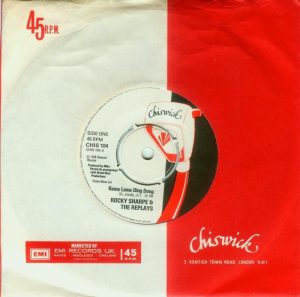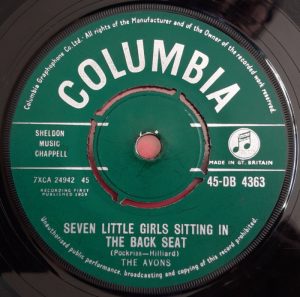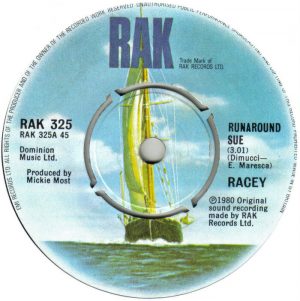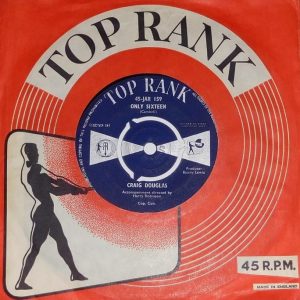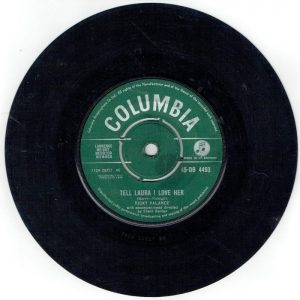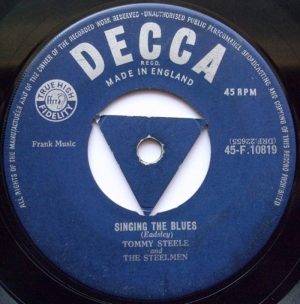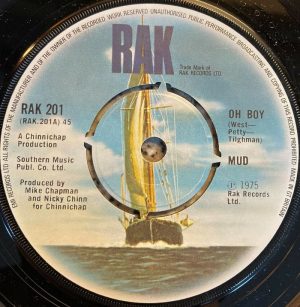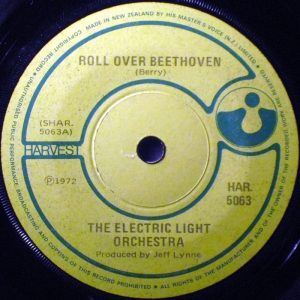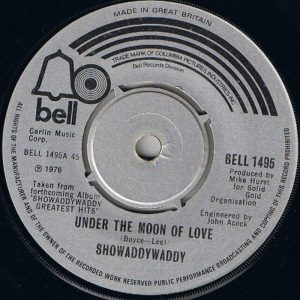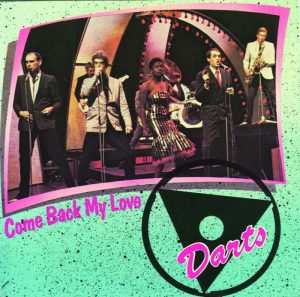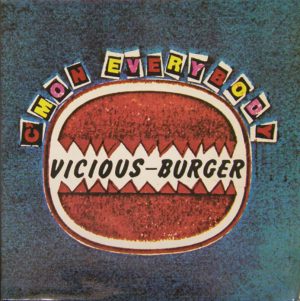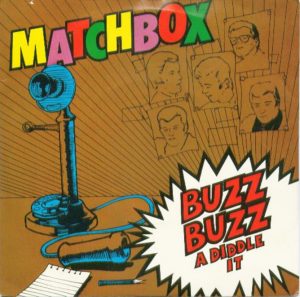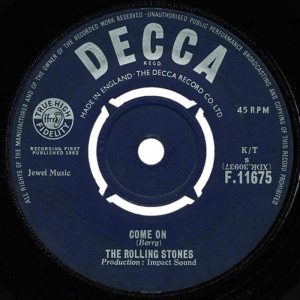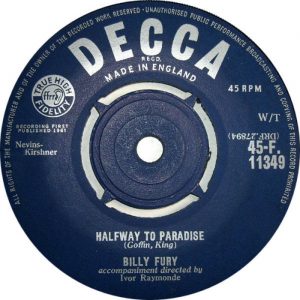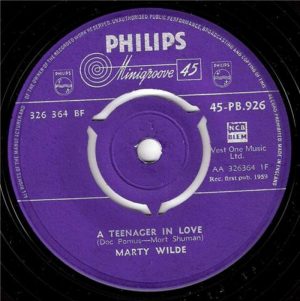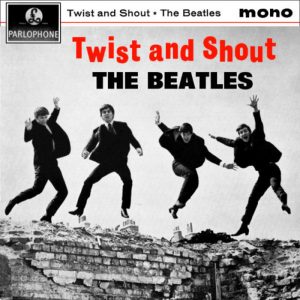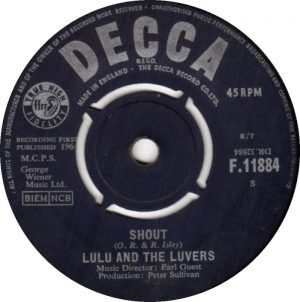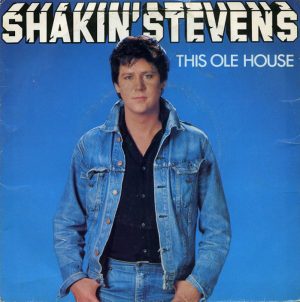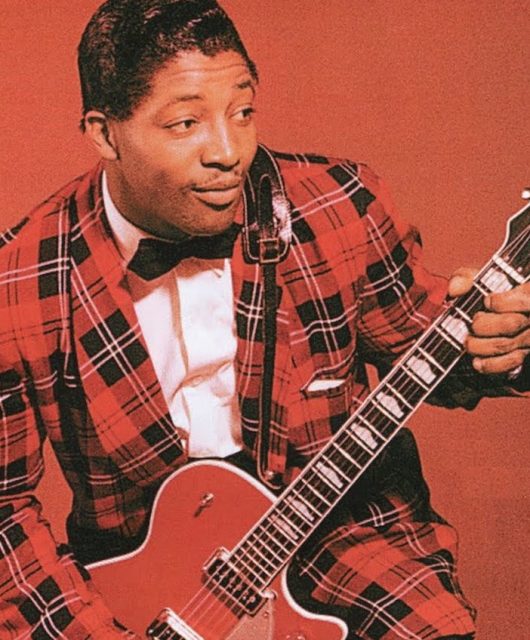We pick out some of the best rock’n’roll songs from over the pond that were reinvented by UK performers with our Top 20 British rock covers of US records
Covering a proven hit has always been a good bet, especially if the original is largely forgotten or was never big in your country. It was common in the 50s for British artists to record simultaneous covers of US singles. In some cases, the two versions fought it out on the charts at the same time.
Later, in the 70s, British rock’n’roll revivalists revisited many songs from the past. Some were bigger hits than the originals – in the UK at least – and in some cases can be considered to be the definitive version, proving that a second recording of a song doesn’t have to be second best.
By Douglas McPherson
20 Rocky Sharpe & The Replays
Rama Lama Ding Dong
1978 (Chiswick)
The Edsels’ self-penned Rama Lama Ding Dong came out in 1957, but only gained traction in 1961, reaching No.21 in the US in the wake of the Marcels’ chart-topping version of Blue Moon. Jump forward 17 years and doo-wop was having a moment on the British charts thanks to the hits of Showaddywaddy. It was the perfect time for Rocky Sharpe & The Replays to dust down the Edsels’ song with an exuberant cover. It was their first and biggest hit, reaching UK No.17 although they did nearly as well with another retread: Shout! Shout! (Knock Yourself Out) in ’82.
19 The Avons
Seven Little Girls Sitting In The Back Seat
1959 (Columbia)
Sung as a duet between a driver and his passengers, Seven Little Girls Sitting In The Back Seat was one of the catchiest and most enduring novelty songs of the 50s. Apart from a few spoken words uttered over the outro by the female members of The Avons, their cover was almost identical to the original by Paul Evans and the Curls, but completely outperformed it in the UK, hitting No.3 to Evans’ No.25. Evans, however, went on to have a British hit 20 years later, when Hello, This Is Joannie (The Telephone Answering Machine Song) reached No.6.
18 Racey
Runaround Sue
1980 (RAK)
Racey recorded the first version of Mickey, a smash for Toni Basil in 1982. But while their recording (waxed as Kitty) never graced the chart, they scored with their cover of Dion’s Runaround Sue. Dion’s version topped the US chart and made UK No.11 in 1961. Sticking to the original’s plaintive intro and handclap rhythm, Racey made No.13. Trailing in behind the doo-wop-styled hits of Showaddywaddy, Darts and The Rubettes, it rounded off a nostalgia-soaked decade when UK radio often sounded like it was picking up transmissions from 50s America.
17 Craig Douglas
Only Sixteen
1959 (Top Rank)
It’s a brave man who takes on the King Of Soul, but Craig Douglas didn’t just do a cover version of Sam Cooke’s Only Sixteen, he left the original standing outside the British Top 20 and careened all the way to No.1. Today, his jaunty rendition, with its whistled intro, sounds very much of its time, but it was clearly perfect for its day, turning Cooke’s plaintive tale of lost love into a catchy pop song that you could whistle on your way to work in a grimy post-war Britain. Only Sixteen was one of eight covers that Douglas took into the Top 40.
16 Ricky Valance
Tell Laura I Love Her
1960 (Columbia)
Ray Peterson’s classic ‘death disc’ about a doomed racing driver was a Top 10 hit in the US, Canada and Australia, but his British label, Decca, refused to release it here for being “tasteless and vulgar”. Columbia saw a chance to record a near-identical version with new signee Ricky Valance. His sweetly voiced disc, like others with ‘morbid’ themes, was banned by the BBC but exposed on Radio Luxembourg and topped the chart, making him the first Welshman to reach No.1. Sadly, it was his only hit, but still put his name among the great teen idols.
15 Tommy Steele
Singing The Blues
1956 (Decca)
Penned by Melvin Endsley, Singing The Blues was one of the most popular songs of 1956. Marty Robbins’ original version summitted the US country chart while Guy Mitchell topped the pop parade. In the UK, however, Mitchell was given strong competition by Tommy Steele. Steele’s cover knocked Mitchell off the No.1 spot only for Mitchell to reclaim it the following week. Attesting to the song’s popularity, Dave Edmunds, Daniel O’Donnell and Cliff Richard have all since taken it into the Top 40, while the fans of several football clubs have adopted it as a terrace anthem.
14 Cliff Richard
It’ll Be Me
1962 (Columbia)
Penned by Sun producer Jack Clement, It’ll Be Me was Jerry Lee Lewis’ only recording with a snappy rockabilly beat as opposed to his more familiar boogie woogie-based sound. Originally intended as a single, it was relegated to the B-side of Whole Lotta Shakin’ Going On. Cliff Richard gave it a groovier, twangier rhythm that sounds like the approach Lewis should have taken in the first place, and modelled his vocal so closely on The Killer his performance was almost an impersonation. The result was perfection and gave an almost ‘lost’ song the exposure it deserved, hitting UK No.2.
13 Mud
Oh Boy
1975 (RAK)
Released a month before Showaddywaddy’s Three Steps To Heaven, Mud’s cover of this Buddy Holly And The Crickets classic helped kickstart the 50s revival in the 70s. However, the glam rockers’ update of the Crickets’ foot-tapper was no slavish retread. Delivered with polished harmonies, it was slowed down to a hand-clapping football terrace-style chant wholly their own. A tongue-in-cheek spoken section – a signature carried over from previous hit Lonely This Christmas – was the icing on a well-deserved No.1 whereas the original only reached UK No.3 in 1957.
12 Electric Light Orchestra
Roll Over Beethoven
1973 (Harvest)
Mixing Chuck Berry’s Roll Over Beethoven with some actual Beethoven was a stroke of genius. The way the opening bars of Ludwig’s Fifth Symphony give way to a searing Berry-style guitar riff is thematically perfect and the track has such an authentic rock’n’roll attitude that the mix of violins and guitars never descends into novelty. The track hit No.6 in the UK and was one of the few examples in this list to cross the Atlantic, climbing to No.42 in the United States. Surprisingly, it was the only version of Berry’s much-covered rock’n’roll classic to grace the British hit parade.
11 Showaddywaddy
Under The Moon Of Love
1976 (Bell)
Showaddywaddy’s first singles were originals, but after hitting No.2 with their revival of Eddie Cochran’s Three Steps To Heaven, they became Britain’s top covers act. Their biggest smash, Under The Moon Of Love, was originally sung by its writer Curtis Lee who reached just No.46 on the US hit parade in 1961. Showaddywaddy’s punchier version topped the UK chart for three weeks. They later hit the Top 5 with another of Lee’s songs, Pretty Little Angel Eyes, generating a surprise royalties windfall for the writer who had by then swapped music for a construction job.
10 Darts
Come Back My Love
1978 (Magnet)
Doo-wop didn’t really reach Britain in the 50s, but in the mid-70s you couldn’t turn on a radio without hearing it, much of it laid down by Darts. In a music business that heaps praise on ‘serious’ music, Darts lost points not just for recording covers but for having too much fun; bass singer Den Hegarty’s performances on Top Of The Pops were simply bonkers! The group’s harmony vocals were nevertheless sublime on this update of a non-charting single released by Bronx-based group The Wrens in 1955. Darts’ version reached No.2 in the UK and was a hit across Europe.
09 Sex Pistols
C’mon Everybody
1979 (Virgin)
As a reaction to the complexity of progressive rock, punk was a throwback to the three-chord roar of rockabilly, so it’s unsurprising that the Sex Pistols would enjoy two hit covers of Eddie Cochran songs, Somethin’ Else and C’mon Everybody. Sung by Sid Vicious – the 70s’ very own rebel without a cause – their roughed up version of the latter faithfully captured the spirit of teenage rebellion. It reached No.3 – three places higher than Eddie’s cut – 20 years before. Vicious didn’t live to see it, though. He was already dead at 21, the same age at which Cochran passed away.
08 Matchbox
Buzz Buzz A Diddle It
1979 (Magnet)
Lost between the smashes Freddy Cannon scored with Way Down Yonder In New Orleans and Palisades Park, Buzz Buzz A Diddle It stalled at a disappointing No.51 in the US in 1961 and was little known in the UK, making it prime for a revival by those rockabilly rebels, Matchbox. Sticking closely to the original’s itchy rhythm, handclaps and opening yells, the band gilded the song with driving harmonica and one of Graham Fenton’s finest vocals. The group had bigger hits but although Buzz… reached only No.22, it was a foundation stone of the early-80s rockabilly explosion.
07 The Rolling Stones
Come On
1963 (Decca)
The Rolling Stones may have changed the sound of rock in the 60s, but their music was firmly rooted in a love of what had come before them. Case in point is their debut single, a cool and faithful recreation of Chuck Berry’s Come On. The song had done little for its writer when released two years earlier, but the Stones’ harmonica-driven rendition steamed to a respectable No.21. The exposure revived Berry’s career and led to his first UK Top 10 with Let It Rock/Memphis Tennessee later that year, Chuck having seen surprisingly little British chart action in the 50s.
06 Susan Maughan
Bobby’s Girl
1962 (Philips)
Applying the principle of ‘don’t bore us, get to the chorus,’ Susan Maughan’s version of Bobby’s Girl took a very different approach to the original by Marcie Blane, ditching the spoken intro and cutting straight to the catchy refrain. Her record also replaced the stripped-down twangy backing of Blane’s cut with a soaring production by Wally Stott and His Orchestra And Chorus. The result was one of the most enduring female hits of the 60s. By coincidence, Maughan and Blane made No.3 on their respective sides of the Atlantic – and neither had another Top 40 hit.
05 Billy Fury
Halfway To Paradise
1961 (Decca)
Halfway To Paradise is so strongly associated with Billy Fury that it’s easy to forget that he wasn’t the first to record it. Penned by Carole King and Gerry Goffin, the song was originally cut by a 16-year-old Tony Orlando who took it to No.39 in the US. Fury’s version reached No.3 in the UK and propelled him into the big time. But although Orlando’s recording is largely forgotten, he later found fame as Tony Orlando and Dawn and topped the charts around the world with the biggest song of 1973, Tie A Yellow Ribbon Round The Ole Oak Tree.
04 Marty Wilde
A Teenager In Love
1959 (Philips)
Marty Wilde went on to write plenty of hit songs, not least for his daughter Kim Wilde in the 80s. But the two biggest crowd-pleasers in his live shows have always been covers: his hit version of Bobby Vee’s Rubber Ball and, especially, A Teenager In Love, originally cut by Dion And The Belmonts. The Belmonts’ record made No.5 in the Billboard Hot 100 but in Britain it was one of three versions of the same song that hit the chart simultaneously and trailed in at a No.28 peak, while Craig Douglas made No.13 and Marty soared to No.2.
03 The Beatles
Twist And Shout
1963 (Parlophone)
The Beatles had no trouble writing No.1s, but their cover of this Isley Brothers’ Top 20 hit – originally recorded by the Top Notes – became a defining track of its era, held off the summit of the US hit parade only by their own song, Can’t Buy Me Love. In the UK, it topped the EP chart and was the fourth biggest seller of 1963. John Lennon was initially ashamed of his hoarse vocals, believing that he could have done better. However, his raw-throated performance is an essential part of the track’s charm, making it sound forever live and in the moment.
02 Lulu And The Luvvers
Shout
1964 (Decca)
If there’s a single most recognisable word in pop, it has to be the six-second-long, multi-syllable “Weeell…!” with which Lulu announced her arrival on the scene in 1964. The Isley Brothers opened their original version of Shout with the same word in 1959, inspired by the way Ray Charles kicked off I Got A Woman. But Lulu infused the word with an energy never before heard on tape, and the rest of her record lived up to its opening salvo. It hit No.7 in the UK, with a re-recording making No.8 in 1986, and remains a siren call to the dancefloor.
01 Shakin’ Stevens
This Ole House
1980 (Epic)
In the early 50s, country singer Stuart Hamblen was on a hunting trip in Nevada when he came across a shack, and a dog guarding the body of its recently deceased owner. The discovery inspired Hamblen to write a song about what might have been the old man’s final thoughts as he “got ready to meet the saints”.
Hamblen’s version of This Ole House hit No.2 on the Billboard Country & Western chart in 1954, and crossed over into the Top 30 of the pop parade, too. George Clooney’s aunty, Rosemary Clooney, had an even bigger hit with the song that same year and her sprightly ragtime version topped the charts in both the US and Britain. Then, 25 years later, US rock band NRBQ cut a rockin’ boogie version that didn’t chart, but inspired Shakin’ Stevens’ impeccably cool, poised and polished performance in 1980.
Shaky had primed the pump of his career with Hot Dog and Marie Marie, but This Ole House was the one that made him an international star, resplendent in blue denim and white trainers. It topped the UK chart for three weeks and rocked the top spot in South Africa and Australia, too.
Enjoy this article? Check out our When Rockabilly Shook The World feature


